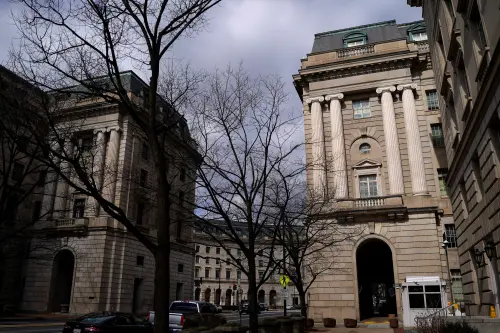The U.S. Internal Revenue Service is currently pausing its technology modernization investments to reassess its operational approach in response to advancements in artificial intelligence technology, as outlined by a senior IRS career technology official on Friday.
The agency is set to review various technology modernization initiatives undertaken in recent years, such as the Direct File free filing system for tax returns introduced under the Biden administration last year.
In light of the Trump administration's significant staff reductions in federal government agencies, the IRS reportedly aims to cut approximately 20% to 25% of its 100,000 employees, according to a source familiar with IRS plans.
Although the IRS official did not specify the exact number of job cuts resulting from the technology pause, it was suggested that there is an opportunity to "realign the workforce" to adapt to the new operational methods.
Treasury Secretary Scott Bessent has voiced optimism about leveraging "the great AI revolution" to enhance tax collections and customer service within the IRS. However, no specific targets for budget reductions or staff downsizing have been disclosed.
The IRS official critiqued the agency's technology systems, pointing out that decades-long reliance on external contractors has often led to significant investments producing limited outcomes.
The ongoing evaluation, carried out under anonymity, aims to address observed challenges, disentangle complex integrator solutions, and shift towards achieving the desired technological modernization goals.
This assessment has not disrupted the preparation for the 2025 tax filing season, with IRS operations running smoothly to process tax returns and issue refunds.
Following a deviation from the originally planned $80 billion IRS investment over ten years outlined in the 2022 Inflation Reduction Act, subsequent government funding measures have significantly reduced this allocation, potentially hindering modernization, customer service, and tax collection efforts.
Recent technological upgrades have included the introduction of new scanning technology for automated paper return processing, AI-powered customer assistance chatbots, and initial investments to replace outdated computer systems based on technology architecture from the 1960s.
The Biden administration at the Treasury anticipates substantial returns from IRS funding, including from technology enhancements, projecting an additional $561 billion in revenue over the next decade.
